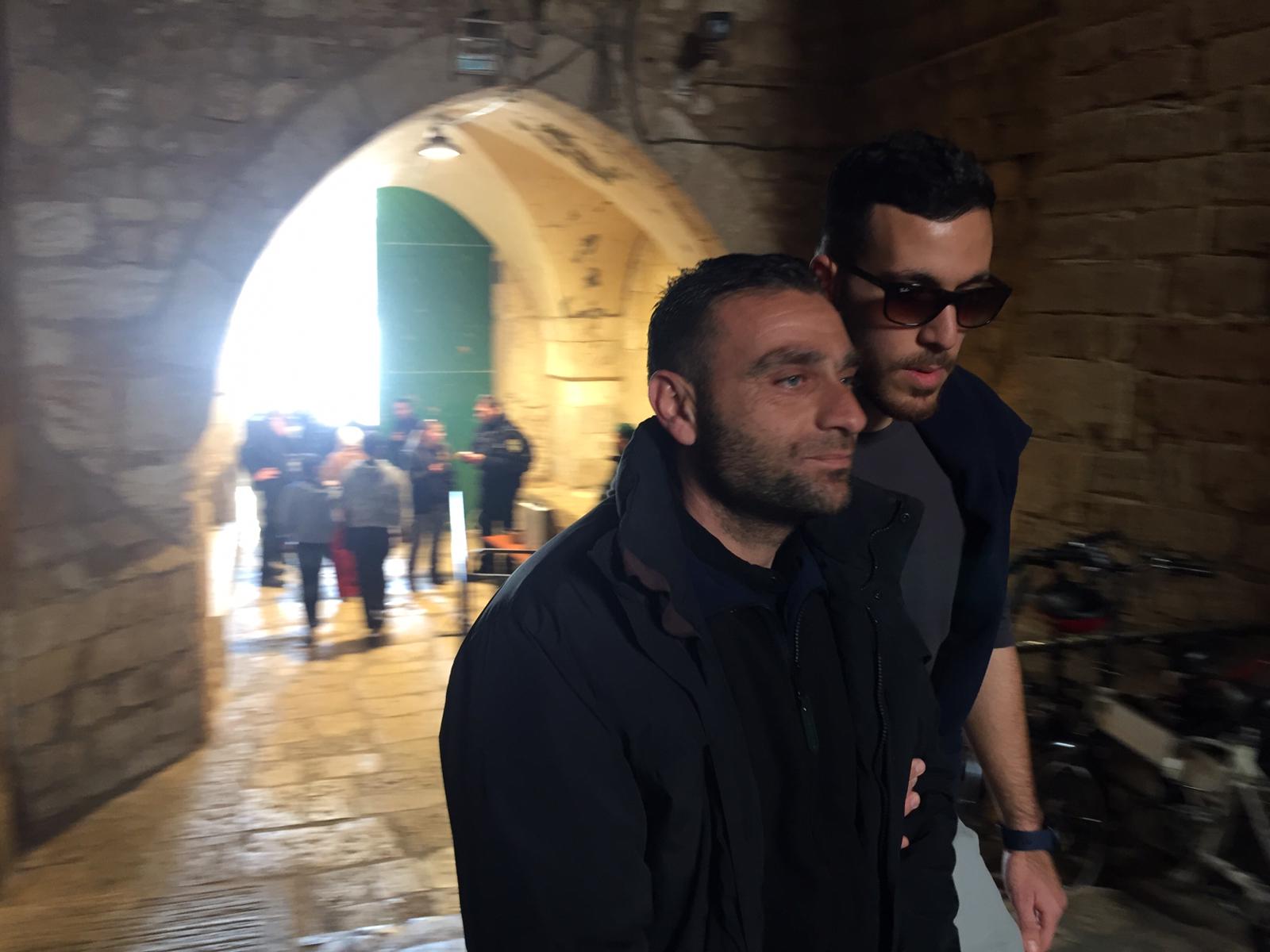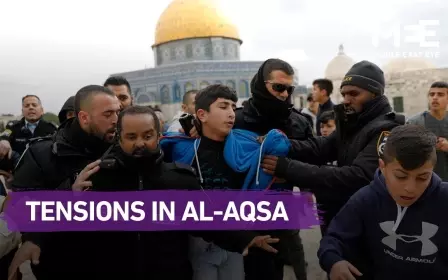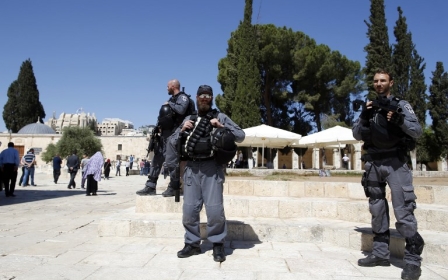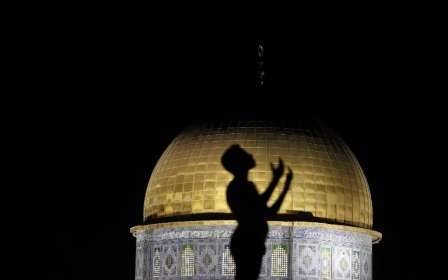Israel arrests senior Al-Aqsa officials for praying in Bab al-Rahma
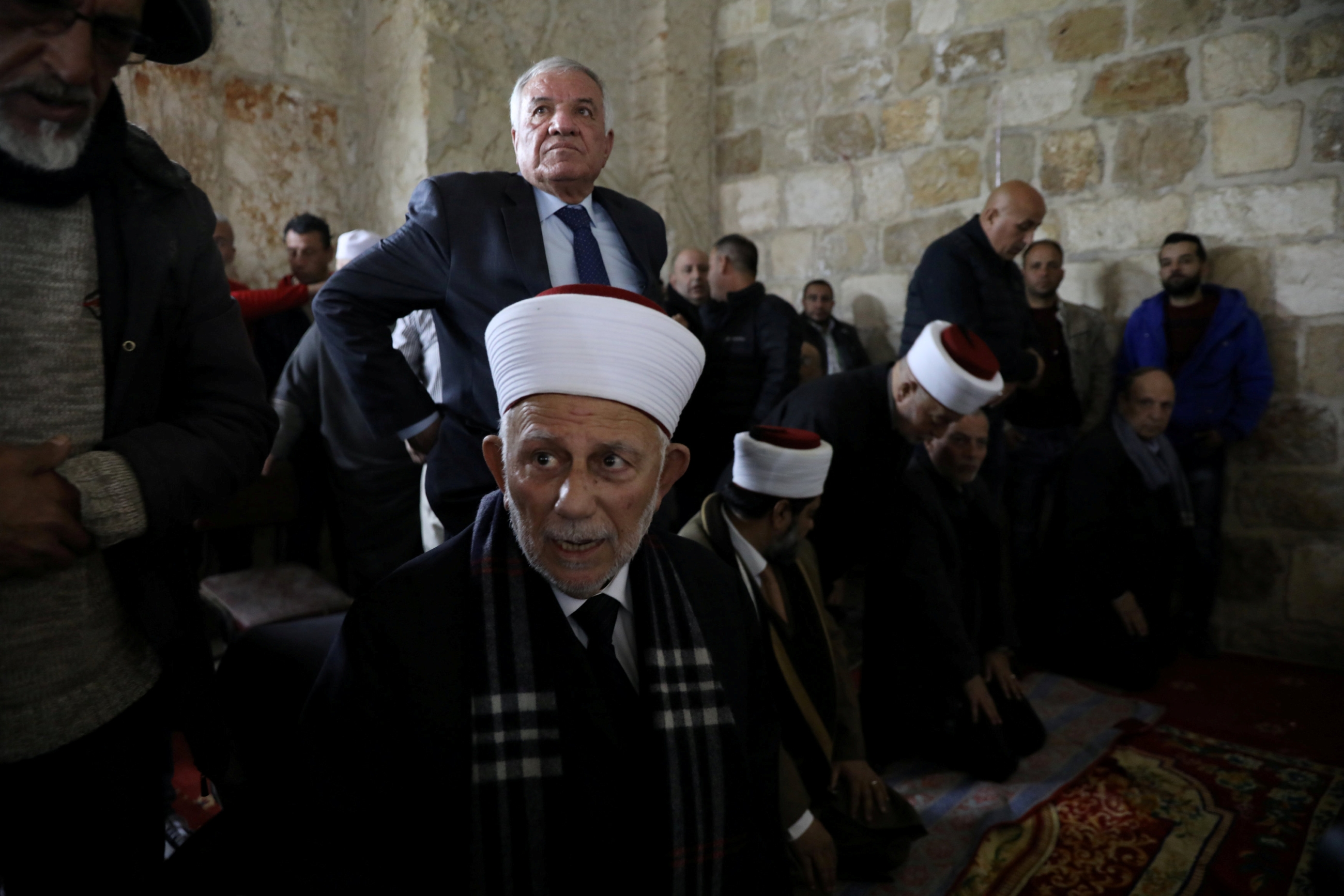
Israeli police have briefly arrested the head of the Islamic council that oversees Muslim holy sites in Jerusalem, along with his deputy, while two Al-Aqsa Mosque guards were detained.
Abdel-Azeem Salhab, president of the Jordan-backed Waqf council, was arrested at his home early on Sunday morning.
Salhab's lawyer said he was later released and that Israeli police had banned him from accessing the compound for seven days, but there was no immediate comment from the police on whether they had issued such an order.
Salhab's deputy Sheikh Najeh Bkeirat was also arrested after a week of heightened tension around the Al-Aqsa Mosque compound.
Jordan's minister of Islamic affairs, Abdul Nasser Abul al-Basal, said the Israeli action was "dangerous and an unacceptable escalation" that affected Jordan's role as the custodian of Muslim holy sites in Jerusalem, according to the Petra news agency.
Stay informed with MEE's newsletters
Sign up to get the latest alerts, insights and analysis, starting with Turkey Unpacked
On Friday, the Waqf council decided to re-open the prayer space at the Bab al-Rahma gate despite opposition from Israel, who originally sealed it off in 2003 during the second intifada.
Salhab personally reopened the gate leading into the prayer space, and hundreds of Muslims went inside to pray for the first time in years.
Israel followed by arresting three Palestinians that night, according to a statement from Israeli police published on Saturday, while Waqf officials shared footage on Sunday of two Al-Aqsa guards being detained.
Another Al-Aqsa official, Sheikh Raed Daana, shared a picture on Sunday of him holding a police order banning him from the mosque for six months.
Israeli police spokesman Micky Rosenfeld said Salhab had been arrested for violating an order preventing entry into a prohibited area of the holy site.
At least 60 Palestinians were arrested between Thursday and Friday after scuffles around the site.
Despite the arrests, the Bab al-Rahma prayer space remained open on Sunday.
Waqf officials told the Israeli newspaper Haaretz that Salhab's arrest was "unacceptable".
"He's the most senior Jordanian figure in the [Palestinian] territories. Twenty years ago [if] the police wanted to interrogate the mufti, they would call and invite him, but coming to a 75-year-old's home like that at 5am is unacceptable," the official was quoted as saying.
Muslims consider Al-Aqsa mosque to be Islam's third holiest site, with special significance for Palestinians, while Jews call it the Temple Mount and consider it their holiest site.
For decades there have been 11 members of the Waqf, which oversees the day-to-day management of the compound.
But last week, Jordan announced that it would be expanding the Waqf council to 18, and will add for the first time representatives of the Palestinian Authority and local Muslim leaders.
Any changes to the balance of prayer rights and access to the site, known as the "status quo," are considered controversial.
After Israel occupied East Jerusalem in the 1967 Arab-Israeli war, Jordan continued as the custodian of the city's religious sites, operating through the Waqf.
In 2017, Palestinians in Jerusalem protested for two weeks after Israel installed metal detectors at the compound's gates when two police officers were killed.
The newly-expanded Waqf council immediately decided to visit the Bab al-Rahma site and pray inside, despite the Israeli ban, prompting the police to padlock the entrance in response.
The same Palestinian Waqf leaders led the 2017 protest movement, initially calling on worshippers not to enter the holy site until security measures were rolled back and then leading each of the daily prayers outside its boundaries, which became de-facto protests.
Middle East Eye delivers independent and unrivalled coverage and analysis of the Middle East, North Africa and beyond. To learn more about republishing this content and the associated fees, please fill out this form. More about MEE can be found here.


